Are you sending a smart kid to kindergarten? Maybe they are already reading, adding, and writing paragraphs. Afraid they will not be academically challenged? As a teacher and mom to “one of those kids” (don’t worry, only one out of 3 was like this)
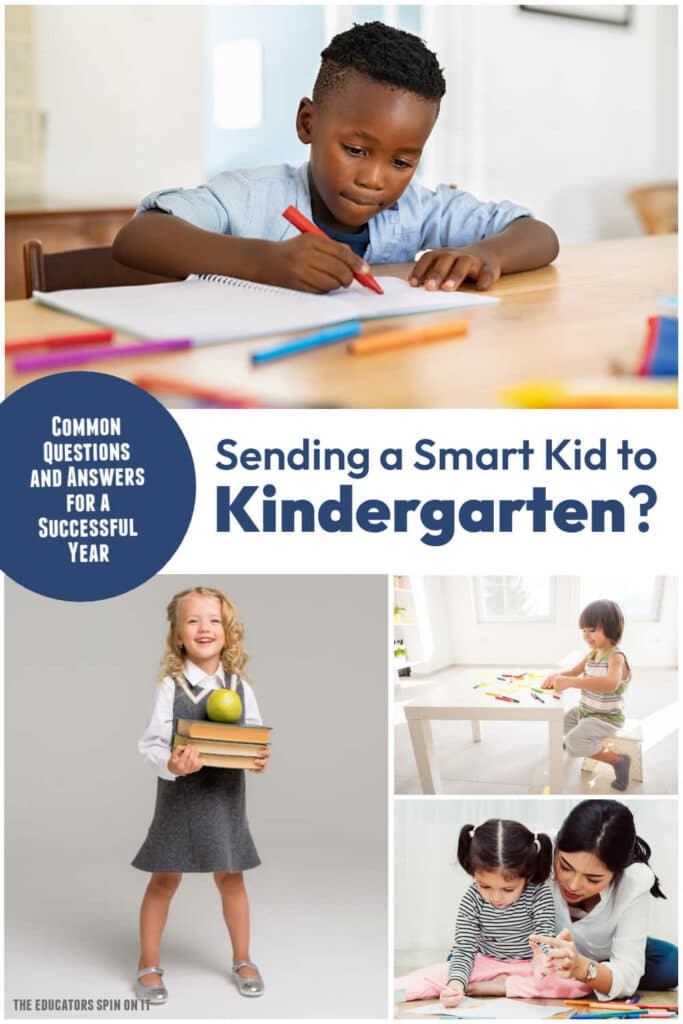
- Q: My kid knows all their letter names and letter sounds. They are reading already. Won’t they be bored when the teacher is teaching the letter names and sounds?
- Q: If my child already knows everything on the kindergarten standards – how will they be challenged?
- Q – How can I keep my smart kid from seeking attention through negative behaviors?
Sending a Smart Kid to Kindergarten
Here are some commonly asked questions and a few thoughts on ways to help make your kindergarten year even more successful.
Q: My kid knows all their letter names and letter sounds. They are reading already. Won’t they be bored when the teacher is teaching the letter names and sounds?
A – Yes, your child will be bored while the teacher is teaching the letter names and sounds. Sorry. There will be times when your smart kid will be advanced in what the teacher is instructing.
In most kindergarten classrooms, the teacher will begin the reading instruction time with a whole group lesson. This is the time when the children sing songs, participate in shared reading experiences, and learn academic concepts.
The curriculum builds in focus areas for children to develop phonemic awareness, phonics, comprehension skills, fluency, and vocabulary. While your child may be a strong reader already, the good news is that there are so many other things that children are also learning at the same time. These lessons will reinforce what they already know.
Additionally, there are numerous other things children are learning during whole group reading instruction time including:
- being respectful of peers
- waiting for turns to answer questions
- participating in group activities
- asking questions for clarification
- listening skills
- staying in your own space
What you can do:
- Talk to your child about learning. Remind them that all children learn to read at a different pace.
- Explain to them how to be a kind-hearted, respectful learner.
- Model how to give positive encouragement to others when you can see they are trying their best.
- Give specific praise to your child on effort and being able to navigate difficult tasks.
- Ask the teacher how your child will be challenged at his or her own level. Keep an ongoing dialog with your child’s teacher throughout the year.
- Attend all parent-teacher conferences.
- Remember that there is more to kindergarten than learning to read! Focus on a different area of learning that you would like to see your child become stronger in: writing is always a good one!
Disclosure Affiliate links used to Amazon.
Q: If my child already knows everything on the kindergarten standards – how will they be challenged?
A – There are a few schools that have ability grouping for kindergarten or gifted programs. These programs pull academically gifted children out during the learning day for a small period of time. Traditionally, most kindergarteners are not screened for giftedness until the end of the kindergarten school year.
Most kindergarten classrooms however use small group instruction to meet the needs of different ability levels. That means, that during the children’s work time, the teacher brings small groups of students to a work area and instructs them on a topic that is at their instructional level. One group may be working on letter sounds while another group is working on reading sentences.
If you want them to be “challenged” I would strongly recommend enriching the school curriculum with learning activities after school. Your child can have an amazing teacher, but there is just honestly not enough time in the day for them to do it all.
What you can do:
- As the school year begins, give them little daily challenges on your way to school such as: find a word around your room that you didn’t know. Sound it out and tell me what your new word is when I pick you up.
- Plan an educational field trip each week with your child. Visit the museum, zoo, park, botanical gardens, inventors museum, grocery store, local event, or art fair and learn within your community.
- Schedule in science, engineering, and art challenges into your child’s day. Start an art journal and explore famous artists through a variety of mediums, set aside one day of the week for super cool science. Bake or sew with your child.
- Hire a tutor or enroll them in an afterschool program that will enrich their daytime learning. Maybe they can learn French? Delve into coding? Play chess?
Q – How can I keep my smart kid from seeking attention through negative behaviors?
A – This is a tough question and takes careful planning and teamwork between the teacher and parents. There are really two issues at play in this question, keeping the child intellectually challenged and socially navigating the classroom dynamics when there is no challenge.
I have had some awesome kids in my classroom that were highly intelligent but quickly became disruptive, attention-seeking students. They were the students who craved a brain challenge to maintain intellectual stimulation throughout the day. As with each student, a teacher’s job is to find out what their needs are and how to best meet those needs within the classroom.
Think about the strategies that you use at home to help your child navigate the world. Are there special challenges (Sudoku? Chapter books? Riddles?) your child enjoys? If so, let your teacher know this. Ask the teacher if they would mind if you purchased and sent in some extra challenges for your child to have available when they completed their classwork.
Communication between school and home is vital to coming up with a good solution to attention-seeking negative behaviors! Make sure to be open to new ideas and approach each day with a positive attitude.
What you can do:
- Ask the teacher to meet before school begins (or within the first few weeks) to discuss ways that you both can work together to enrich your child’s education. E-mail or phone calls work good as teachers are really busy during back-to-school time.
- ALWAYS send your child to school with a book to read. My daughter always had a chapter book in her backpack. Encourage them to read when time permits.
- Purchase a workbook that is at your child’s independent reading or math level that will provide them with intellectually challenging work when needed. Keep this in a desk or work area.
- Come up with a plan for how a child can receive positive attention. This may be a little hand signal, a picture cue card or a special place in the room.
Here are some of the books we have used in the past. Why 1st grade? because K is probably too easy for your smart kindergartener.
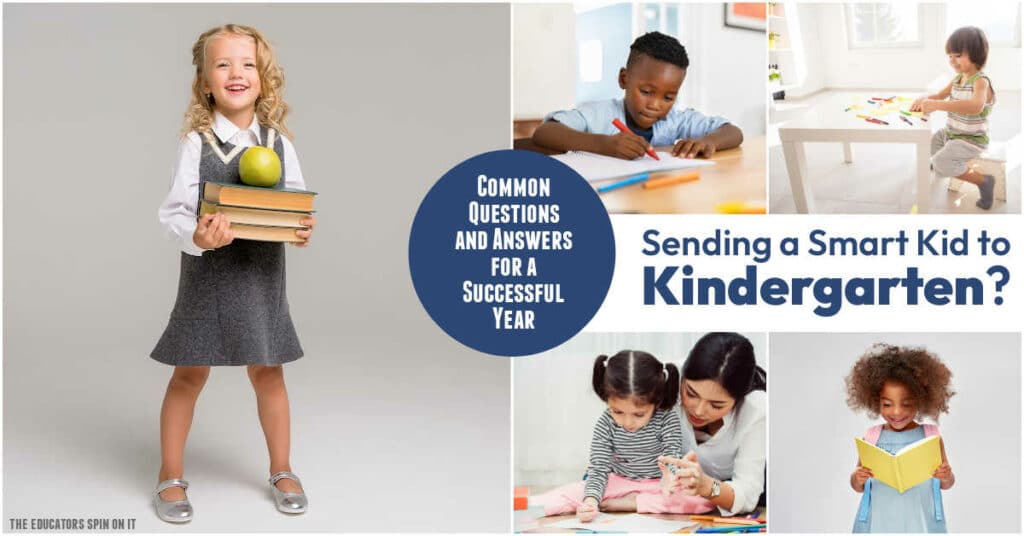
Your child may also enjoy these activities…
Keep your kindergartner’s skills sharp this summer and help prepare them for first grade with these hands-on, innovative learning games in our book, 100 FUN AND EASY LEARNING GAMES FOR KIDS. Turn off the TV and beat boredom blues with these clever activities that are quick and easy to set up with common household materials. Each of the 100 learning games comes with an additional 3 alternative ways to play, making this a resource with nearly 400 activities!





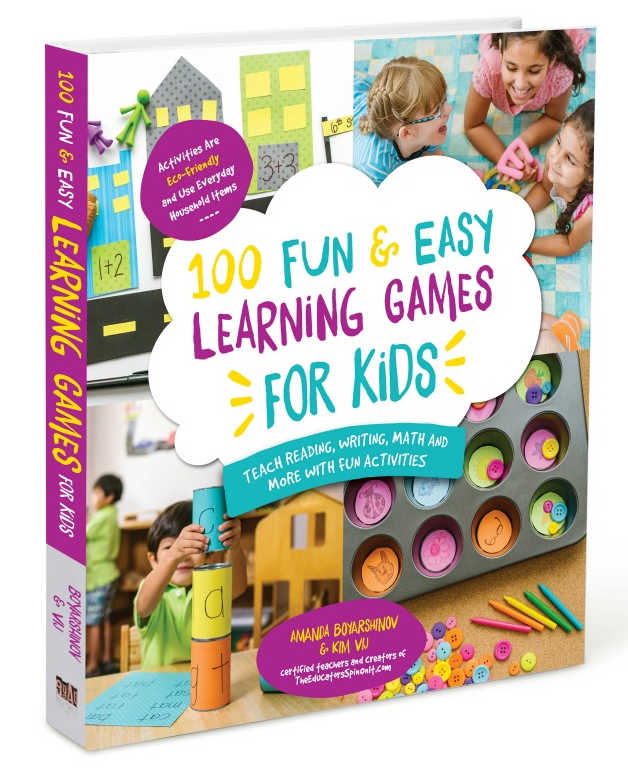


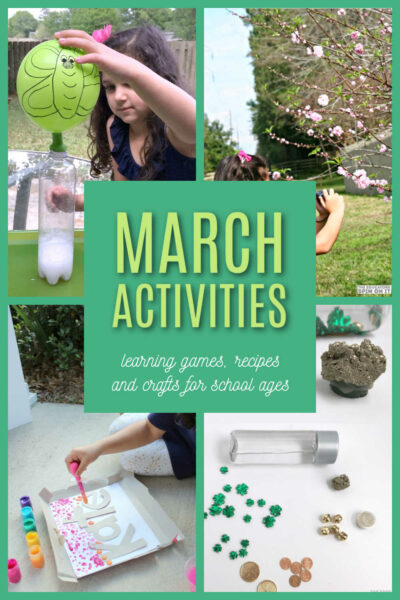

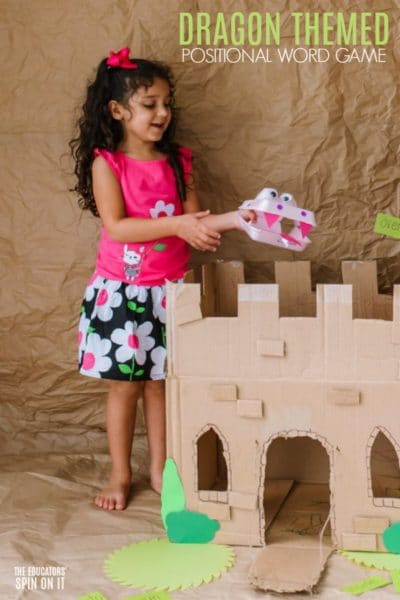

I often hear kids in class saying they are bored. Sometimes they are repeating what they hear at home. I have had students say “I act this way because I’m bored” When kids say they are bored I ask “what does boring mean?” In 5 years students have yet to explain it. I do get “ It means I don’t like it, it’s hard, it means I make bad choices” just to name a few. Getting smart kids to write well or journal is an awesome way to challenge them, I also let them draw pictures of things they learned or ask about things they want to know about.
My son is in kindergarten and does not want to do homework gets distracted in class says everything is for baby’s and boring. He was taken out of prek last year and placed in kindergarten for 3 hours a day because he wasn’t being challenged. I have already spoken with the teacher and, he hates school idk what to do!
That must feel so disheartinging. There are several tips in this article to help you and your child. One thing you’ll want to arrange with your child’s teacher are enrichment activities he can do once he’s finished the assigned tasks. Sending him with books he’s chosen to read as well may help keep him positive and on task. One key skill they are also working on are social skills in Kindergarten which is important too.
One thought: we enrolled our child in a dual language classroom (in public school, we are in Texas), which is a sort of immersion classroom. Half the kids speak primarily Spanish, half English, and the teacher teaches different things in each language. So he is learning letters and numbers that he already knows, but in Spanish. I think learning Spanish has been a saving grace for us! He LOVES it! He is still running into problems when he doesn’t want to do his work, but it may not be all because he is bored, he gets defiant about lots of things, so we are working on that. Also, personally, I wouldn’t do flashcards and worksheets and formal academic stuff at home. There are plenty of other ways to learn without that, like the author mentioned – art, cool science hands on stuff (we love kiwi crates), baking, sewing. Things they _can’t_ do at school.
I’m so glad I’m not the only mom who feels like this! We’ve only been in school for a month, and my kindergartner is so bored and getting into trouble. We repeated a 3rd year of preschool (which she LOVED) because she wasn’t socially or academically ready, but then she accelerated past the other kids in pre-k and was the top student reader in her class. Like others, her school’s kindergarten goals are to learn letters and sounds….and she’s already writing sentences with phonetic spelling. It’s so frustrating because my bright daughter loves to learn. We have a meeting with her kindergarten teacher and the instructional advisor at the school and I’ve printed out the curriculum standards and goals for English Language Arts and Math, and have found that my daughter’s proficient in many of them already. It’s ridiculous to think that after 7 hours of school, a 6 year old is going to be able, or want, to do more school work. They need free time for creative play and movement.
I thought I was going crazy! I have finally found parents who seem to have the same concerns. My husband and I put our kindergartener in a private school because we felt he was a little bit more advanced and we didn’t want him to get bored. He was our first child and really we don’t have any good example to compare him with. In reality we figured most parents think their kid is special but those last 3 weeks have been frustrating for all of us. I know they learn so much more in kindergarten but he comes home and says school is boring. He went to preschool and was always so excited about learning. I know the days are longer now. He loves math and he’s doing second grade math with my nephew. I literally printed the same homework for both of them and he did it without problems. He loves it and he gets excited. The curriculum for the school says the kids will learn to count to 100 by the end of the year and basic maths. He can read simple sentences, school said they will learn how to sound the letters by the end of the year. At this point I am forced to do more challenging work with him after school and on the weekend. I just don’t know what to do. I don’t want to approach teacher and act like my kid is the only one who needs special attention. I don’t want to be that parent. I am a little disappointed also in the teacher because I thought at least one of them will notice that he can read. This kid loves learning. They did test him before getting admitted to the school and we were told he tested above average.
We are having similar issues here, too, with our kindergartner. He was so excited to go to school to learn new things. I think now he’s totally frustrated with the whole situation. The school year has gotten progressively worse to the point that now he is in the principal’s or counselor’s office most of the day. This has been going on for three weeks now. I keep telling them he’s bored and his mind is not being challenged. They say he needs to learn to be socially more mature and accept boundaries, etc.. I keep thinking, the normal kids are all happy because they are challenged and interested in what they are learning. He’s not happy and he’s not shy or reserved enough to put up with it. He’s fighting it because he can’t seem to figure out how to articulate it….what do we do as parents?
This frustrates me. It feels like school is daycare and then my child comes home to actually learn. Or they have to learn from either reading or workbooks on their own. Homeschool in evenings and weekends? When are they supposed to play? What about all the other stuff kids do in evenings and weekends – swim lessons, church, family gatherings. Forcing a highly curious kid to wait it out all day while maintaining good behavior seems miserable for everyone involved.
I totally agree with you!!! This is what I always say. I literally homeschool every night, after a full day at work for me, and a full day at school and after school care for her… It’s exhausting for both of us… And she’s only in kindergarten.
Yep. Why even send them to school? People wonder why everyone is having fewer children, there’s no way to do it and have a life at the same time because our institutions are broken and it doesn’t make economic sense to have a job just so you can pay a second mortgage for a decent education for your kid.
I just sent my smart kid to kindergarten and they put her in a blended k-1st class. They have given her the map test and she scored in the 88th percentile. She did bad in the counting catagory, not because she does not know it but because it does not interest her. She did very well in algebraic thinking and geometry though. The school has done what they can to help her stay interested but it is still not enough. She comes home and I have math games, flash cards for sight words, writing assignments, and worksheets to do that keep her brain active at all times. Don’t be surprised if your child comes home and says things like “the homework is dumb mom.” My daughter says this all the time.
I like that you mentioned the many things they can learn other than academics at preschool. My son is pretty smart as it is, but he lacks some social skills. This would provide him a great opportunity to interact with other kids his age.